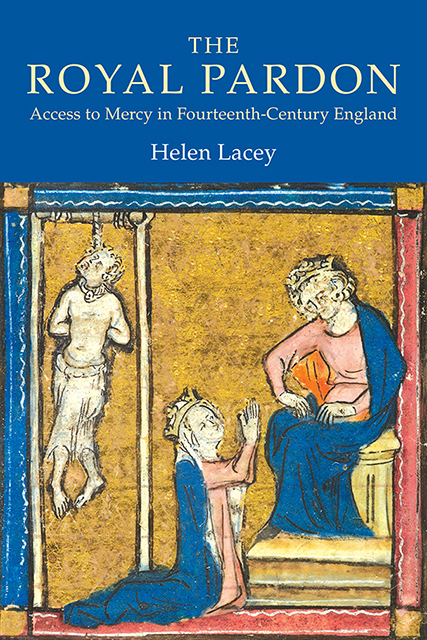Chapter Nine - Pardoning and Revolt: The Peasants Rising of 1381
Published online by Cambridge University Press: 07 March 2023
Summary
Only four years after the jubilee celebrations of 1377, Richard II's government issued a general pardon, but this time there were no references to celebration; rather it was a response to the unprecedented crisis of the Peasants’ Revolt. The terms of the pardon were presented to Parliament on 13 December 1381; all the king's subjects were to be granted mercy, both those accused of rebellion and those who had remained loyal. Considering the volume of scholarship generated on the Peasants’ Revolt, the subject of pardon has only ever been given fleeting reference. This is somewhat surprising in light of the long-running debate on how best to characterise government reaction to the rebels and their demands; did the Crown exercise commendable moderation in dealing with the rebels, as Barrie Dobson claimed, or was there in fact a vindictive campaign of repression? J. A. Tuck's work on the Parliament held after the revolt in the autumn of 1381, highlighted the divide between the Lords and Commons, the latter championing the policy of moderation that was eventually adopted. More recently, Andrew Prescott has suggested that we have glossed over the events in London in the immediate aftermath of the revolt, because of the absence of the relevant legal records. He argues that chronicle accounts give a true picture of the devastation in London, with rebels being put to the sword or hanged in their thousands. Rather than enter into the debate about the number of rebels sentenced to death, this chapter examines some of the ideas about the nature of royal mercy that were thrown into relief by the events of 1381. Several of the chroniclers noted that, at the height of the revolt in London, the rebels and the government representatives both referred to the notion of royal grace. The idea of pardon also played a prominent role in the subsequent judicial proceedings and in the parliamentary debates. The surviving records of the revolt thus shed light on some of the late medieval assumptions about the nature of royal mercy, assumptions it was perhaps only necessary to articulate at a time of such unprecedented crisis.
Events in London
The chronicle accounts of Walsingham, Froissart and the Anonimalle Chronicle are the main sources for the early stages of the revolt, from the first localised expressions of discontent in late May and early June 1381 through to the famous meetings between the king and Wat Tyler and his band.
- Type
- Chapter
- Information
- The Royal Pardon: Access to Mercy in Fourteenth-Century England , pp. 127 - 159Publisher: Boydell & BrewerPrint publication year: 2009



